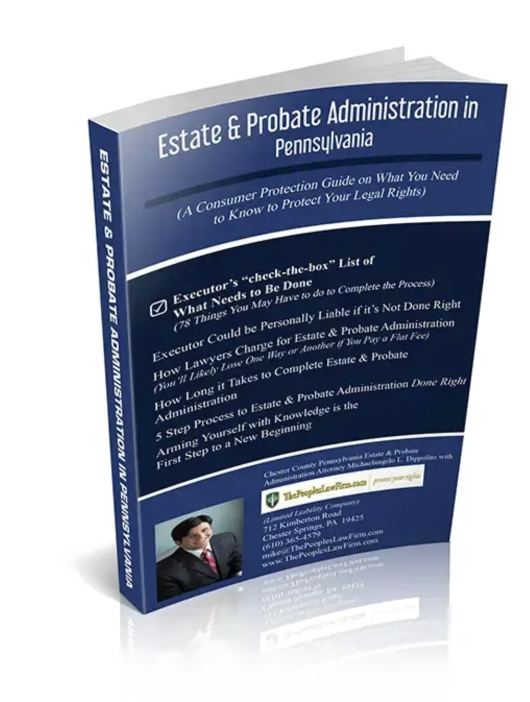- What is probate and when is it required in Pennsylvania?
- Probate is the legal process of validating a will and administering a deceased person’s estate. In Pennsylvania, probate is required if the decedent owned assets solely in their name. Assets held jointly or with beneficiary designations (like life insurance or retirement accounts) may avoid probate.
- How long does probate take in Chester County, PA?
- On average, probate in Chester County takes 9 to 18 months, depending on the size and complexity of the estate. Factors like disputes, real estate sales, or tax filings can extend the timeline.
- What are the duties of an executor or administrator?
- An executor (named in the will) or administrator (appointed by the court) is responsible for:
- Filing the will with the Chester County Register of Wills
- Collecting and inventorying assets
- Paying debts, taxes, and expenses
- Distributing assets to heirs and beneficiaries
- How much does probate cost in Chester County, PA?
- Costs vary depending on the estate, but generally include:
- Court filing fees (typically little more or less than $1,000 depending on value of estate)
- Attorney fees (either hourly or a percentage of the estate)
- Accounting, appraisal, and publication costs
- Executor’s commission, if applicable
- Costs vary depending on the estate, but generally include:
- Can probate be avoided in Pennsylvania?
- Yes, with proper planning. Common tools to avoid probate include:
- Joint ownership with right of survivorship
- Payable-on-death (POD) or transfer-on-death (TOD) designations
- Living trusts
- Yes, with proper planning. Common tools to avoid probate include:
- What taxes apply to estates in Pennsylvania?
- Pennsylvania imposes an inheritance tax on most transfers at death. Rates depend on the heir’s relationship to the decedent:
- 0% for spouses and charities
- 4.5% for direct descendants (children, grandchildren)
- 12% for siblings
- 15% for others
- There is no separate state estate tax in Pennsylvania, but federal estate tax may apply to very large estates.
- Pennsylvania imposes an inheritance tax on most transfers at death. Rates depend on the heir’s relationship to the decedent:
- What happens if someone dies without a will in Chester County, PA?
- If a person dies intestate (without a will), Pennsylvania law dictates how assets are distributed. The estate passes to surviving spouses, children, or other relatives according to a statutory order of priority.
- Do I need a lawyer for probate in Chester County?
- While not legally required, probate in Pennsylvania can be complex. Having an experienced Chester County probate attorney ensures compliance with deadlines, accurate tax filings, and reduces the risk of costly mistakes or disputes.
- Where do I file probate in Chester County, PA?
- Probate filings are handled through the Chester County Register of Wills, located in West Chester, PA. This office oversees the opening of estates, granting of letters testamentary/administration, and probate filings.
- How can I prepare my estate to make probate easier for my family?
- Creating a valid will, keeping beneficiary designations up to date, considering trusts, and organizing financial records can make probate smoother. Proactive planning with a Chester County estate attorney helps minimize costs, delays, and stress for your loved ones.
- Home
- About
- Testimonials
- Practice Areas
- Resources
- Frequently Asked Questions
- 5 Step Process to Estate & Probate Administration Done Right
- 78 Tasks that May Have to be Done to Complete Estate Administration
- Executor Could Have to Pay If It’s Not Done Right
- How Lawyers Charge for Estate and Probate Administration
- How Long It Takes to Complete Estate & Probate Administration
- Serving
- Contact
Call Now 24/7





